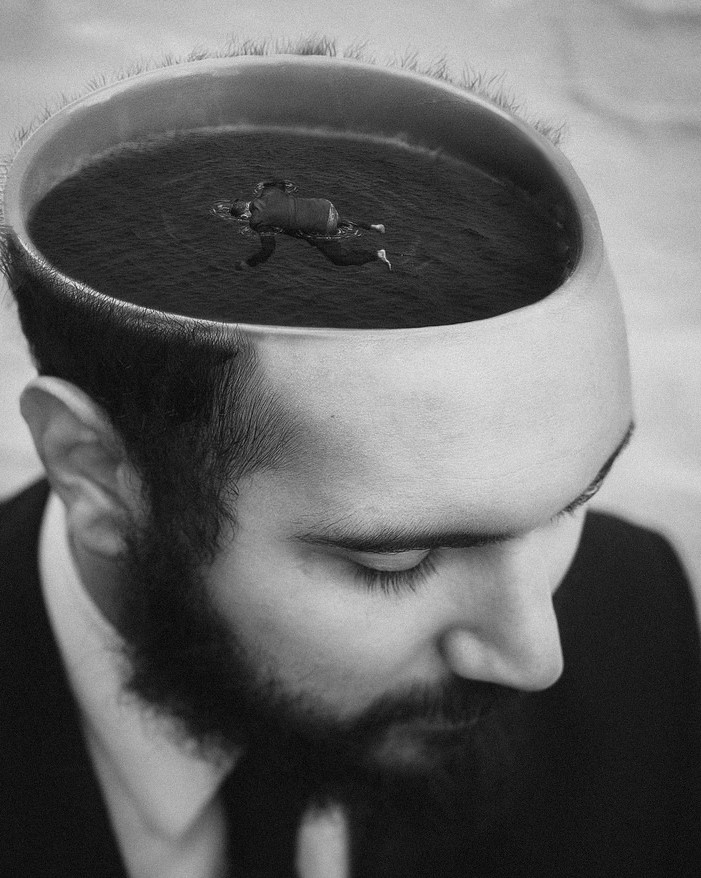You have no items in your cart. Want to get some nice things?
Go shopping Ideology is, once again, en vogue, and in a Europe in crisis, that can hardly surprise. At the very latest since the public consciousness had to accept that hundreds of people drowning in precarious boats in the Mediterranean are not just a spectre, but deadly reality; since hundreds of thousands of people fleeing from civil wars sought shelter and a future in the middle of Europe, uncovering a new rift between those countries responding and those refusing to; since the UK’s EU referendum saw an MP being killed while on duty and the winning ‘leave’ campaigns promises evaporating in air; and at the very latest, since the massacres in Munich, Nice, or Orlando, has there been a strong shift in the towards value systems that seem secure, because familiar. In the absence of any clear model of what the Europe, whose borders seem both increasingly porous and fortified, actually stands for, 20th-century ideologies of a marginalised working class (as in the post-Brexit UK), of nationalism, of a clash of cultures celebrate their return.
Ideology is, once again, en vogue, and in a Europe in crisis, that can hardly surprise. At the very latest since the public consciousness had to accept that hundreds of people drowning in precarious boats in the Mediterranean are not just a spectre, but deadly reality; since hundreds of thousands of people fleeing from civil wars sought shelter and a future in the middle of Europe, uncovering a new rift between those countries responding and those refusing to; since the UK’s EU referendum saw an MP being killed while on duty and the winning ‘leave’ campaigns promises evaporating in air; and at the very latest, since the massacres in Munich, Nice, or Orlando, has there been a strong shift in the towards value systems that seem secure, because familiar. In the absence of any clear model of what the Europe, whose borders seem both increasingly porous and fortified, actually stands for, 20th-century ideologies of a marginalised working class (as in the post-Brexit UK), of nationalism, of a clash of cultures celebrate their return.
Don’t get me wrong: if we want change, some ideological backing can be in order, as Barack Obama’s inauguration as president amply demonstrated. But these ideological underpinnings, including the nationalism, the “righteous concern” about immigration, even the evocations of a working class in cases where marginalization is protested while refusing to accept immigrant workers into this vision (quite against the history of the working class movement, one might add) are not aims to work towards. Not only do they fail to provide a utopian vision to aspire to other than one based on a defensive instinct of fear and anger; they have also been proven wrong, long and bloodily, in the history of the 20th century.
This is a crisis of the public sphere, and of the grand narratives in the larger sense, which after all have not melted into a postmodern celebration of difference. It came to boiling point with the recent, deadly attacks on civilians in the USA and Europe. But looking at responses to these atrocities by such typical suspects as Donald Trump, the German right-wing populists of the AfD or Boris Johnson has also exposed these simple solutions to be illusory once and for all: The Munich shooting, for one, was not an act of Islamist terrorism, as Boris Johnson claimed prematurely; even more chillingly, the AfD used the same claim to canvass support for their own party’s right-wing policies. Of course, other attacks, such as the murder of a priest in France or the Nice massacre do have this IS background, yet unlike the perfectly orchestrated attacks on September 11, 2001, the recent spark of terrorist and other violence is much more individualistic and seems caused by a conglomerate of psychological, political and social factors.
So how to face this? Pitting one ideology against the other seems not only ethically questionable – it is also completely beside the point, as this crisis does not obey one narrative alone.
In all this discursive cacophony, we need to take a step back and figure out our position of response, to give us any chance of tackling what is not just a terrorist threat, but a crisis of the democratic public sphere and the values that come with that. I would like to suggest an alternative take: working towards a new vision of the democratic self.
Hannah Arendt’s philosophy of thoughtlessness offers a starting point. This is sobering as it explains why so many people opt for the feeling of a dominant ‘we’, in the hope that the simple refusal to accept uncomfortable truths would somehow make them less real. And it is chilling because it means accepting the fact that decades of life in a democratic and peacefully collaborating Europe have not made us immune to the populist temptations which many hoped had been beaten out of Europe in WWII. Therefore and typically for Arendt, this is not sexy, not easy, not comfortable, as it involves questioning ourselves how or why we might be complicit in the current rise of populist demagoguery.
What makes intelligent people go along with ideologies without questioning their premises, according to Arendt, is not just the sense of power and togetherness that arises from this. It is also a question of failed empathy, because it makes necessary the refusal to think from the position of another. This failure of the imagination, in short, is the rejection of the Kantian imperative on a political scale. Yet paradoxically, refusing to take into account the other’s perspective – be it a refugee, an immigrant, an LGBT person – also means succumbing the self to the ideology of one of the demagogues of the present day. Democracy, after all, is not just a question of the majority vote; it also depends on the willingness of each of us to engage with the values of human rights, equality and tolerance that are the basis of democratic systems. Talking about thoughtlessness in politics, therefore, is not linked to party politics; it highlights the fact that whichever side you choose, whether you join in or stay out, is going to make you complicit, for better or worse.
Arendt’s belief in the responsibility of each of us to think, judge and debate empowers individual subjects across the dividing lines of class or nationality. Whether in the echochambers of the internet or in the face of populism, we need this debate about claiming back control, in ways that completely subvert Nigel Farage’s slogan.

About Katharina Donn
Katharina Donn’s first book, A Poetics of Trauma after 9/11", has been published by Routledge in 2016. She works internationally, between Germany and London, and is employed as associate lecturer and post-doctoral research fellow at the American Studies Department at the University of Augsburg. She has also held positions with the University of Texas at Austin and with the Institute of Advanced Studies at UCL. She enjoys being a transnational traveller, commuting between Germany and the UK, and works with the Brilliant Club at London state schools to advocate equality in education.





So this is the way we had been looking to get the credits here. https://ccnumbers.net/